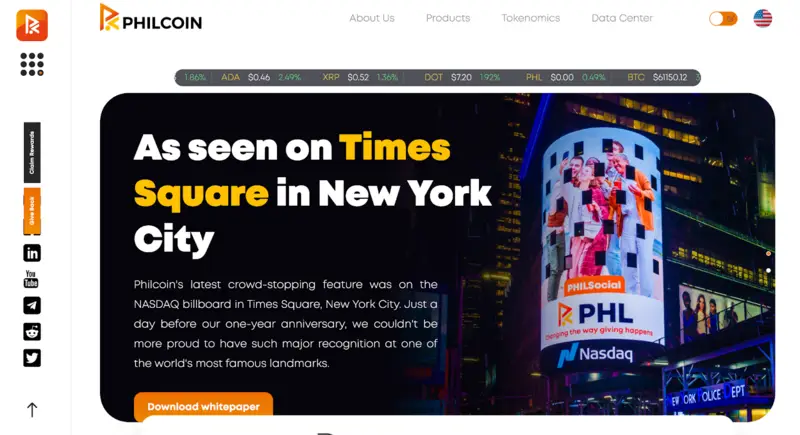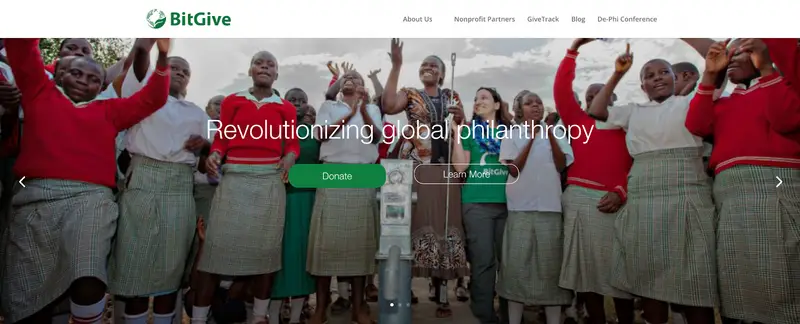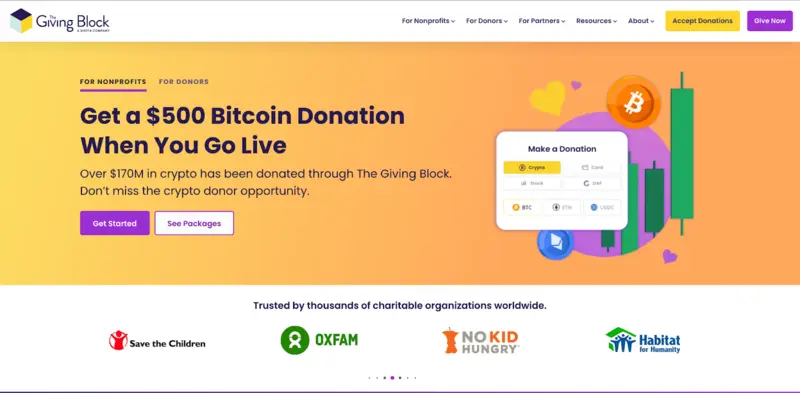Surprising Innovations in Blockchain for Social Good

Photo by Matt Ridley on Unsplash
Blockchain technology has moved beyond its early ties to cryptocurrencies and decentralized finance. Over the past decade, it has grown and expanded, now revolutionizing multiple sectors, including philanthropy. By introducing transparency, accountability, and new fundraising models, blockchain is altering the way we do charity. This article explores five ways blockchain is transforming philanthropy, highlighting innovative projects that take advantage of its potential for social good.
Philcoin: Gamifying Charity with Blockchain

Philcoin is a pioneering project that turns giving into a rewarding experience through its unique approach to gamifying charity. By engaging with activities within the PHILApp, users earn PHL tokens. However, there's an intriguing twist: to unlock these tokens, users must first donate half of them. This mechanism ensures that charitable contributions are central to the platform's operation, bringing philanthropy into the core of user interactions.
The gamification element of Philcoin makes charitable giving more engaging and appealing, especially to younger generations who are used to reward-based digital ecosystems. Users can participate in a variety of activities within the app, from educational quizzes to social challenges, all designed to encourage community involvement and generosity. The more active the users, the more they can earn and donate, creating a positive feedback loop that benefits both the givers and the receivers.
Philcoin's approach helps create a sustainable digital economy centered around charity. By asking users to donate a portion of their earnings, the platform creates a continuous flow of funds to good causes. This model not only promotes participation but also makes sure that donations are consistent and impactful, transforming the traditional one-time donation model into a dynamic and ongoing process.
BitGive: Real-Time Donation Tracking

BitGive uses blockchain technology to provide donors with unprecedented transparency regarding their contributions. Through its GiveTrack platform, donors receive real-time updates on how their funds are being utilized, offering a clear view of the impact their donations are making. This level of transparency transforms the donor experience, fostering trust and encouraging more generous contributions.
GiveTrack addresses a significant challenge in the philanthropic sector: the lack of visibility into how donations are used. By allowing donors to see exactly where their money is going and the outcomes it is achieving, BitGive enhances accountability and builds confidence in charitable organizations. This transparency can also help organizations attract and retain donors, as individuals are more likely to contribute when they can verify the impact of their generosity.
Additionally, BitGive's platform supports a wide range of projects, from disaster relief efforts to environmental conservation initiatives. By showcasing the tangible results of donations, BitGive not only validates the efforts of charities but also provides donors with a sense of accomplishment and direct involvement in positive change. This innovative approach encourages a deeper connection between donors and the causes they support, fostering a more engaged and committed donor community.
Gridcoin: Crypto Mining for Science

Gridcoin offers a unique twist on traditional cryptocurrency mining by rewarding participants for contributing their computational power to scientific research projects. Instead of mining for personal gain, users earn Gridcoins by participating in initiatives that benefit society, such as medical research and environmental monitoring. This redirection of mining efforts towards scientific endeavors turns energy consumption into a force for good.
The concept behind Gridcoin addresses one of the major criticisms of cryptocurrency mining: its significant environmental impact. By channeling computational power towards scientific research, Gridcoin provides a more sustainable and socially beneficial alternative. Participants can support crucial projects, such as climate modeling, drug discovery, and disease research, simply by contributing their computing resources.
Gridcoin's approach also democratizes scientific research by allowing anyone with computational power to participate. This opens up new avenues for funding and conducting research, particularly for projects that might not receive traditional funding. By aligning the incentives of miners with the needs of the scientific community, Gridcoin creates a synergistic relationship that advances both technology and societal well-being.
The Giving Block: Crypto and NFTs for Charity

The Giving Block is revolutionizing charitable giving by enabling nonprofits to accept cryptocurrency donations and facilitating NFT-based fundraising campaigns. By providing the infrastructure for nonprofits to accept various cryptocurrencies, The Giving Block opens up new revenue streams and attracts a younger, tech-savvy donor base.
One of the standout features of The Giving Block is its integration with NFT platforms, allowing artists and creators to mint NFTs and donate the proceeds to nonprofit organizations. This platform has facilitated numerous high-profile NFT charity auctions, connecting the booming digital art market with philanthropic causes. Notable examples include partnerships with artists who donate proceeds from NFT sales directly to charities, and collaborations with organizations to launch NFT fundraising campaigns .
This dual approach of leveraging both cryptocurrencies and NFTs opens new fundraising channels, appealing to a broad range of donors and leveraging the popularity of digital assets to support charitable initiatives. The Giving Block’s innovative use of blockchain technology not only diversifies the methods of fundraising but also enhances transparency and trust in the charitable sector.
Conclusion
Innovations like these show blockchain's potential to change philanthropy and how we think about it. By gamifying charity, improving transparency, and creating new fundraising models, blockchain is not just a financial tool but a catalyst for social good. Projects like Philcoin, BitGive, Gridcoin, and The Giving Block demonstrate that blockchain works really well in promoting transparency, accountability, and innovation in the charitable sector.
It's likely that blockchain technology will be used in philanthropy in even more surprising and impactful ways. By embracing innovations, the philanthropic sector can improve its effectiveness, attract new donors, and ultimately make a greater difference in the world.
Comments
Post a Comment